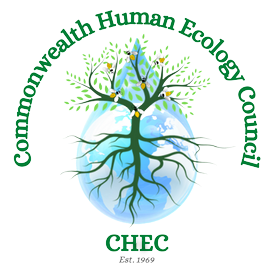Morteza Honari
Governing Board Member
Morteza Honari spent the first decades of his life in Iran and gained his first degrees in Iranian Universities, with which he maintained a lifelong connection. He published an article on the qanat at Xur (Khoor) in France in 1971 and a book in Persian ‘ntišārāt-i wizārāt-i farhang wa hunar’ in 1973.
He moved to Edinburgh to study for his Ph.D., being the first student to write such a thesis for Edinburgh University’s Centre for Human Ecology. His work ‘Qanats and human ecosystems in Iran: with case studies in a city, Ardakan, and a town, Xur (Khoor)’ focussed on the ancient system of trapping groundwater and diverting it into tunnels running downslope where settlements and irrigation systems could reach the water by vertical shafts, by means of which hydraulic pressure would rise the water to the ground surface. Honari placed the modern use of the centuries-old system in a human ecological context.
Later he joined the staff of the University of Newcastle, New South Wales, Australia and became highly involved in the ecological aspects of human health, particularly in the Northern Territory, publishing articles on the health problems faced by Aboriginal People there and on skin cancer issues among the non-Aboriginal population. His sustained experience in the field led to a co-edited book with Thomas Boleyn on “Health Ecology: Health, Cultural Human Environmental Interaction” (1999) for which Zena Daysh wrote an introduction that reminded readers of the interconnectedness of things and the need to avoid having academic knowledge in silos. In his essay, Morteza argued for a human ecological viewpoint that puts health into context. He set out his conviction that human ecology is holistic, environmental and concerned with the ecological interdependencies that support all life. While in New South Wales, Honari supported the Iranian immigrant community, for example, with his son, translating a special book on a community festival in Sydney into English.
Zena Daysh encouraged Morteza to try to set up a CHEC Chapter in Australia. He was recognised as CHEC’s representative in the country and joined the CHEC Governing Board, attending some of the meetings in London in the early 1990’s. However, he later returned to Iran, becoming the Deputy to the President of Karr (Labor) University and later went on to set up his education consultancy helping students to find places in international universities. More recently, he established Dr. Honari Education in Dubai as an academic counselling group helping people further their careers by overseas study. He developed a partnership with Go Global Education Initiatives, a US corporation providing a range of services in international education.
Morteza was a regular attendee at Human Ecology conferences, especially those organised by the US-based Society for Human Ecology, and he found time to attend CHEC’s online Governing Board meetings regularly since 2020 and was always one of the world’s most consistent and enthusiastic human ecologists. In 2022, he received the Life-time Achievement Award of the Abrahamic Business Circle. The Circle was set up as an outcome of the “Abraham Accord” the historic break-through agreement made between the United Arab Emirates and the State of Israel on September 15, 2020, in Washington DC.
With kind thanks to Ian Douglas
7 November 2022

